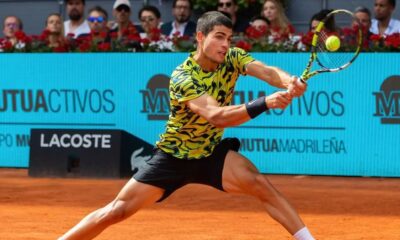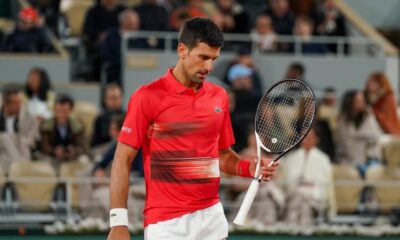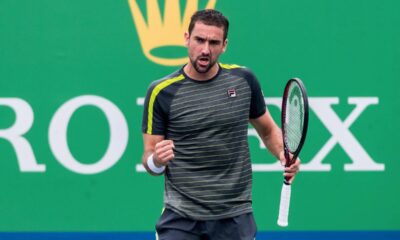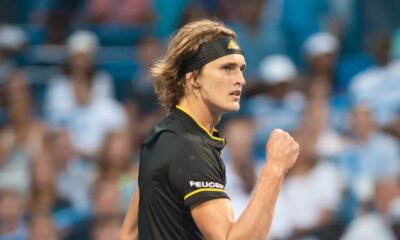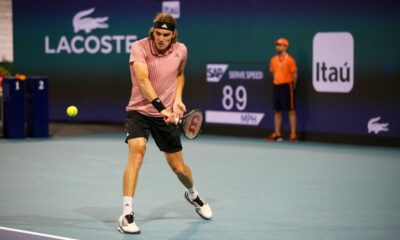Tennis
Holger Rune: My family is proud of me, my mother helps me a lot. I want to be in the top 10 this year
Holger Rune – every tennis enthusiast will know this name by now. The 18-year-old Dane gave a breathtaking performance in his debut at the French Open. As of Monday, he is ranked 28th on the ATP rankings and is hoping for an even bigger ranking move by the end of the year.
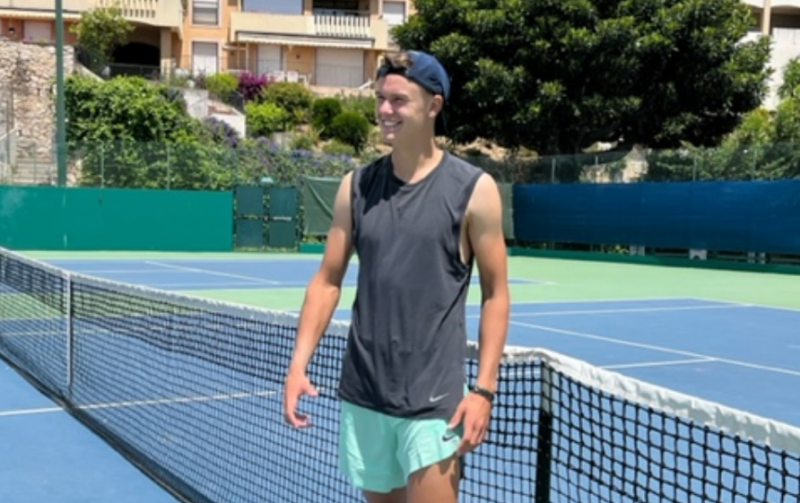
Holger Rune – every tennis enthusiast will know this name by now. The 18-year-old Dane gave a breathtaking performance in his debut at the French Open. As of Monday, he is ranked 28th on the ATP rankings and is hoping for an even bigger ranking move by the end of the year. What else did he reveal in an interview with Ruik.cz?
You confirmed your great start to the season with your excellent performance at the French Open. What was your goal going into the tournament?
After my victory in Munich, I proved to myself that I am at a level to really compete with every player on tour. In my mind, I always enter a tournament with the belief that I can win. If I don’t win, it means I have to get better, and I’m doing that. Step by step
In the first round, you beat the 15th player on the ATP rankings, Denis Shapovalov.
Yes, I didn’t have an easy draw. Even though I wasn’t seeded and I couldn’t expect an easy opponent, I have to say that I always have a very tough draw. I had Zverev in the second round in Munich, Djokovic in the first round at the US Open last year and now Shapovalov at the French Open and then the Swiss guy, who I’ve lost to twice. Then also Stefanos and Gaston, who have always played extremely well in the big tournaments in Paris. It wasn’t easy to accept the draw.
Did you believe that you could go very far at Roland Garros this yearafter your wins against Laaksonen and Gaston ?
I knew I could do it. But at the same time, I had never played more than one match at a Grand Slam before, so I honestly didn’t know how my body would react. Because one thing is that we’ve been training, so I should be able to deal with long matches against very good players, the other thing is what actually happens when you’re out there on court at a slam.
But my training paid off. I didn’t feel cramps, I didn’t feel tired, I felt good the whole time. And because of that, I feel stronger today, knowing that I can endure long Grand Slam matches.
It came down to the match with Stefanos Tsitsipas, the fourth player in the ATP rankings. After winning 3:1 in sets, you brought the match to a successful conclusion. How did you enjoy this match? And how was it playing against a player who, as you said, is one of your favourites?
I really like Stefanos. I’ve seen him play at the academy when I was young. He’s very good, especially when he makes his forehand shot with his ankles. And yes, I had a lot of respect for him. Naturally you respect high-profile players, because we all know that you don’t get into the top 5 unless you have a great mindset or a winner’s mentality in your weapons. So yes, I was happy after the win.
In the quarter-finals, you were facing Casper Ruud, who you hadn’t won a set against until then. You thought you had nothing to lose?
I’d already lost to him twice. He’s brilliant on clay. I played a good match against him in Monte Carlo, but he didn’t play very well there. I think he took his tennis to a very high level at the French Open. He’s not easy to beat. I think especially on clay.
The first set didn’t go well at all, then your performance went up rapidly. What did you have to change? Was it mainly about changing your rhythm and shortening your game a lot?
I didn’t play most of the first set according to my game plan. I felt tired from the beginning of the match. The match started very late. Afterwards I talked to my coach and I think it’s natural that the previous matches took a lot of energy. And then the late start, that wasn’t the best cup of coffee for me either.
Do you think that your performance in a positive sense also affects your healthy self-esteem?
I think the French Open was very good for my self-esteem. Like Munich. Winning against high-profile players you’ve lost to before gives you confidence. You know you’ve evolved and it’s satisfying.
How do your family and sister, who used to play tennis, feel about your performance? Does family play a big part in your tennis journey?
I know they’re proud of my work. They know how much energy I put into my tennis every day, so they are definitely very happy when I manage to succeed.
In 2019, you won the Junior Grand Slam at Roland Garros, and this year you won your first ATP tournament in Munich. Is clay the best surface for you?
In juniors it was easier for me because I was competing with guys older than me. It’s easier to return serve on clay because it’s slower. So in juniors I liked clay. At some point I doubted if I could win on hard court, but then I played some tough ITF tournaments and won them too.
The junior championship final was also on hard court and I won that as well. I like hard today as much as clay. And now I’m going to grass, where I last played in the juniors in 2019, so that will be fun.
You’ve been playing against Spain’s Carlos Alcarez since you were a kid. Apart from the rivalry, you have a friendship. Are you in regular contact and do you watch his matches?
We see each other at tournaments, but we all have busy schedules. He’s in Spain, I’m in France and Monaco. He’s a good guy.
At the moment, you two are considered as maybe the biggest contenders for the world number one position in the coming years. Do you perceive this fact?
He’s already in the top 10 and my goal is to get there this year as well. But then there are other guys who are doing very well. There are some good players from 2002 and 2003. We’ll definitely hear more from them.
What do you think is behind your big rise in recent months?
Three months ago I started working closely with my mother. At that time I was in 70th place. She told me that if I listened to her and did what she said, I would be in the top 30 by the end of May. She was right, so I continue to listen to her as best I can. Now we are setting new goals and making new agreements about what to do and how to do it.
Did you always want to play tennis as a kid? Or were you drawn to other sports?
My sister played and I wasn’t allowed to start at a local club until before my sixth birthday, so I watched my little sister play for a long time before I was finally allowed to start. I’ve loved tennis ever since.
With school, how are you coping? Do you currently have tennis as your first priority?
I’ve successfully finished school and now I’m focusing solely on tennis. That’s great.
Which tennis player was your biggest role model when you were growing up?
Both Federer and Nadal in their way of playing. The elegant and beautiful tennis of Federer and the perfect fight of Rafa.
Youstill can’t drive the BMW you just won in Munich. Are you planning to get your license anytime soon?
Yes, definitely. If not in the near future, I’ll get one in pre-season at the latest so I can finally drive my cool BMW from Munich.

